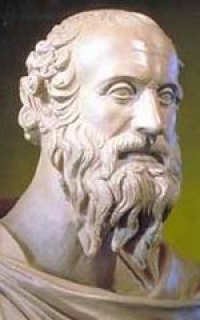
One of the founders of the cynic philosophy, Diogenes believed that people should live simple lives that reject all natural desires for wealth, power, or fame.

Web.Diogenes (412 BC- 323 BC) was a Greek philosopher like no other. He died in Corinth in a very old age on the same day as Alexander the Great, who was one of the philosopher’s greatest admirerers. He remained faithful to his philosophy throughout his whole life. When in old age he was told to stop philosophizing and rest, he said “ If I were a runner on the track would it be right for me to abandon the competition just before the end or would I have to make an even greater effort?”.Īccording to Diogenes Laertius, Diogenes wrote a significant number of books, of which Republic and Treatise on Republic are known. When asked why people help beggars instead of philosophers, he said “ Everybody believes that one day they can become blind or sick, but they cannot be philosophers!”.

When he was told “ The Sinopes have sentenced you to exile”, he replied “ And I have sentenced them to stay there”. Another time, he saw a local bath which was very dirty and asked “ Where do the ones bathing here wash themselves afterwards?”. When he once saw the phrase “Let no evil come in” written above the door of an evil man, he knocked the door and asked “ Where does the owner of the house enter from?”. Many os his quotations have survived through time. A major part of his philosophy was sarcasm. He used the same word with different meaning in a sentence depending on the situation. For Diogenes, living a life in accord with reason was greater than living a life in accord with the conventions made up by the society.ĭiogenes invented the wordplay as part of Cynic philosophy. In order to be reshaped in God’s image, man must undergo a radical metamorphosis of his nature. Man was created by God in his own image, but was corrupted. He aimed at a mass transformation of the human society. The purpose of his mission was, as he said, to prevent the “forgery of the coin”, meaning to prevent the corruption of the human soul. In contrast to the physiologists, who were mostly concerned with the study of nature, Diogenes was mostly involved with social and ethical matters. Nevertheless, he was highly respected among others for his wisdom, as evidenced by the fact that he was entrusted to teaching sports and sciences to Xeniades’ children. He had a habit of mocking everything that was bad about people and refused to change his attitude about it.


He would frequently carry a lantern when walking around the city, “searching for an honest man” as he claimed. He distanced himself from anything that was unnecessary he walked around barefoot, wore a tunic, carried a walking stick and slept in an oversized jar below the Acropolis. As such, his extreme lifestyle was a faithful practice of his philosophy. He believed that man was created by nature in such a way that he possesses all the necessities of life, but man himself creates a number of artificial needs and desires. He is mostly remembered today for the introduction of humour to philosophy and his cynical puns.ĭiogenes can be summed up as a “Socrates gone mad”, as put by Plato. Diogenes’ unorthodox philosophy and lifestyle drew much attention from the spiritual figures of his time. He was exiled to Athens, where he became a student of Antisthenes, the founder of the Cynic School. He is also known as Diogenes the Cynic or Diogenes the Dog, because while other dogs bite their enemies, he bit his friends to correct them. Diogenes is the most famous representative of the Cynic School of philosophy.


 0 kommentar(er)
0 kommentar(er)
